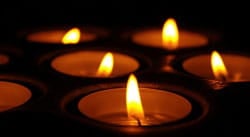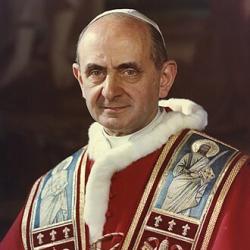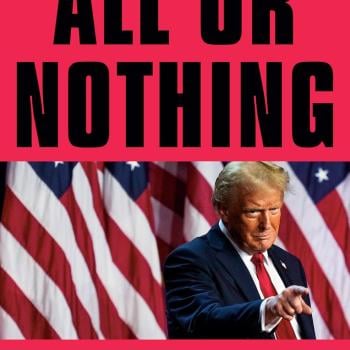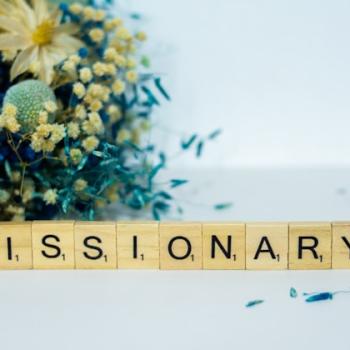 For some people, the Advent season on the church calendar is one of the most anticipated times of the year. For some, there is no other time in which their love of God is stronger, there is no other time in which they are more aware of God's mercy in their lives and in the world, there is no other time in which their hearts go out to others with such affection, and there is no other time in which their joy is more profound.
For some people, the Advent season on the church calendar is one of the most anticipated times of the year. For some, there is no other time in which their love of God is stronger, there is no other time in which they are more aware of God's mercy in their lives and in the world, there is no other time in which their hearts go out to others with such affection, and there is no other time in which their joy is more profound.
I am not one of those people.
For me this time of year has always been a spiritually dry time. There is a line in a Counting Crows song that says "You can see a million miles tonight, but you can't get very far." That is my experience during this season. Every year I anticipate it with everyone else, hoping that this year will be different. Maybe this year the earth-shattering experience of God will take place, and I'll be able to take in the seismic joy that should result from the knowledge that God entered the course of human history to reclaim it as his own. But by December 26th, I'm left with disappointment, another year of not getting very far.
I experience a deep division within myself during Advent. My inner world stirs with longings for deep experiences of grace, for moments of pregnant silence, for times of candlelit reflections on the fullness of deity wrapped in a child. But my outer world is harassed by the rampant activity, the hurried crowds, and the consumeristic clutter of the season.
I think my personal division reflects a broader cultural division. I'm willing to suspend my cultural cynicism for a moment and speculate that at the root of American consumer Christmas is a deep-seated desire for meaning. I may be way off on this, but I suspect the decorations, the music, the saturated social calendars, the capitalistic flurry, and the caloric overload are attempts at finding something true, something significant. Hopes for discovering community and transcendence. There is a neighborhood near my own that puts on an unbelievable show of lights, music, and decorations for the weeks leading up to Christmas. Cars line up for blocks to meander through the illuminated streets and residents sit in their driveways around firepits and chat with the passersby. Aside from laying a carbon footprint likely visible from outer space, it is a powerful display of community spirit.
The problem, I think, is that our culture doesn't know how to truly celebrate. Overconsumption and overstimulation are the only ways we know how to mark a special occasion. Even though most of us implicitly know it doesn't work and that we're going to wake up with a hangover, it's all we know how to do. When there is a significant event, we commemorate it by scurrying around, spending absurd amounts of money, gathering a crowd, and turning up the volume. If we're not weighed down by anxiety and insomnia, then it must not be a very important occasion. Our holiday "celebrations" therefore seem destined to only get bigger and bigger, because we have built up such a tolerance.
Many of us in the church live in the tension of this religious and cultural ambivalence. Our Christmas Eves are often a confusing recipe of ingredients like these: the onslaught of relatives, massive food preparation, stressful and boisterous dinners, hurrying everyone into the car, attending a hot, packed Christmas Eve worship service in which we light candles, and sing lyrics like:
Silent night, holy night
All is calm, all is bright
Round yon Virgin Mother and Child
Holy Infant so tender and mild
Sleep in heavenly peace
Sleep in heavenly peace
Then we rush home, hustle the kids into bed so we can finish wrapping gifts and stuffing stockings, because they'll be up in five hours. Sleep in heavenly peace indeed.
I was originally asked to write about this topic because I have written a book about Christian introverts, those in the church who prefer a quieter, slower, more contemplative lifestyle and who, for those reasons, often find themselves on the fringes both of the culture and of Christian community. I saw a blog post recently that called January 2nd "Happy Introverts Day" because of the notorious nature of the holiday season for those of us who find social interaction tiring and sometimes stressful. But the truth is that the need for a quieter, less cluttered, more reflective Advent season is not restricted to introverts. The clatter of the holidays has caused people of all temperaments to turn from the inner places of our souls, contributing to the superficiality of our spiritual practice during this season. We need to find a new way to celebrate.
In the early centuries of the Church, celebrating Christmas was a counter-cultural activity. It's unclear whether the church fathers chose December 25th to co-opt the already entrenched pagan festival of the Unconquered Sun, or whether the pagan holiday was established to rival the Church's celebration of the birth of Christ. What is clear is that Christmas was a subversive event, providing an alternative to the mainstream culture's celebration.




